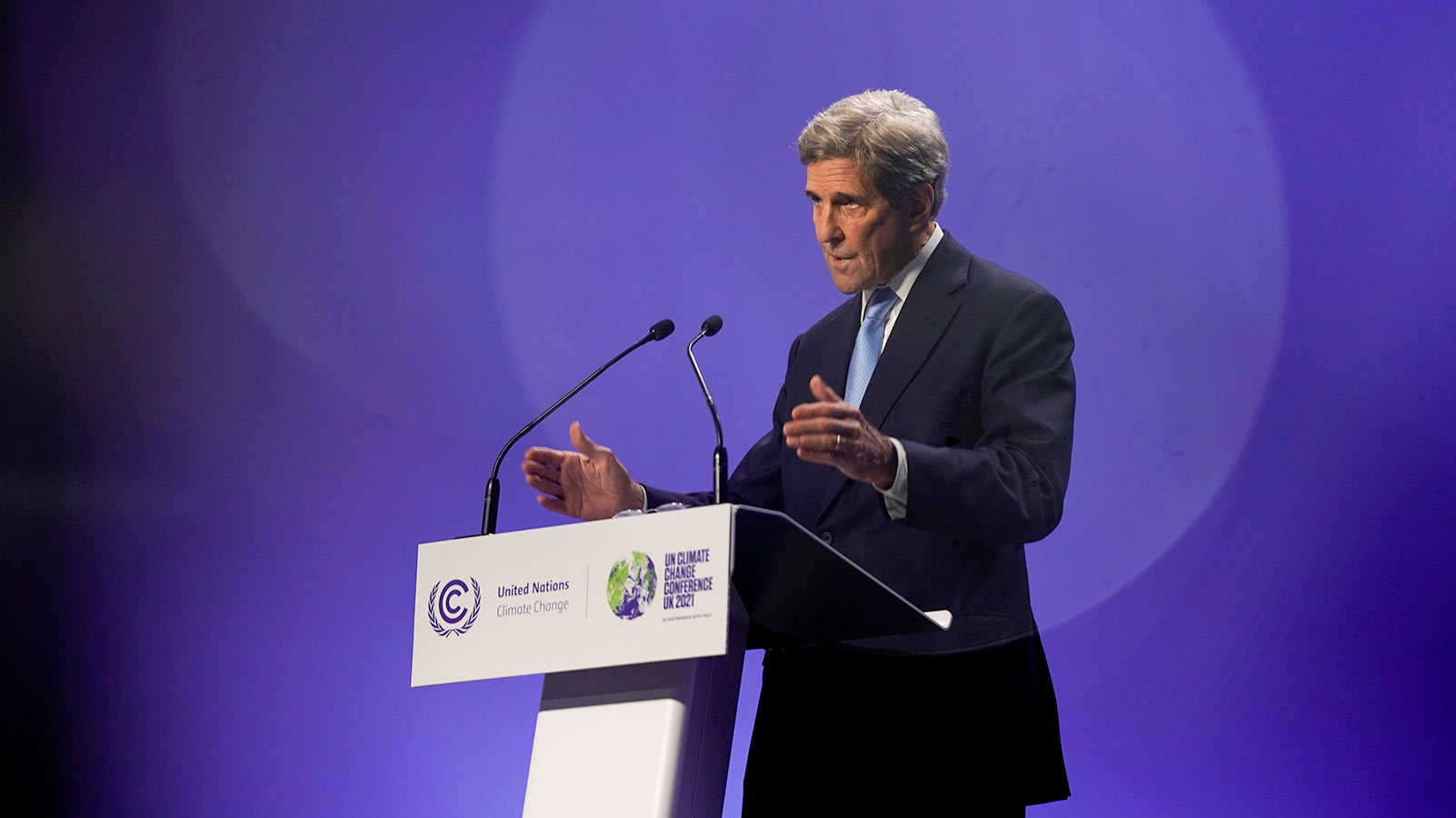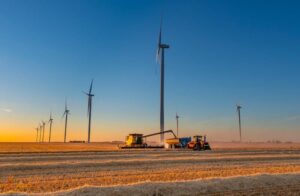With negotiations in Glasgow beginning to approach a crunch point, the United States and China stole the show on Wednesday with the release of an unexpected joint statement confirming the two major world powers will cooperate on accelerating action on climate change, including a commitment to phase down the use of coal and tackle methane emissions.
With Chinese President Xi Jinping declining to attend the COP26 talks, there were concerns that China, currently the world’s largest emitter, had become disinterested in global cooperative efforts to cut emissions and to limit global warming.
But a surprise joint statement released between China and the United States – the culmination of backroom negotiations between their respective heads of state – has the two powers agreeing to cooperate on ramping up their their respective efforts to keep global warming to within safer limits, with a particular emphasis on the short term need to bridge an ambition gap to keep the Paris Agreement goals within reach.
“The two sides are intent on seizing this critical moment to engage in expanded individual and combined efforts to accelerate the transition to a global net zero economy,” the joint statement says.
Between them, the United States and China are responsible for more than 40 per cent of global greenhouse gas emissions.
The statement sees the two countries reiterate their commitments to significantly reduce their consumption of fossil fuels, with the United States committing to “reach 100% carbon pollution-free electricity by 2035” and China, in turn, committing to “phase down coal consumption during the 15th Five Year Plan”, which starts from 2026, “and make best efforts to accelerate this work.”
“Cooperation is the only way to get this job done,” US special envoy for climate, John Kerry, told a press conference on Wednesday in Glasgow.
“This is not a discretionary thing, frankly, this is science. It’s math and physics that dictate the road that we have to travel and we cannot reach our goals unless all of us work together. Every country, and China and the United States particularly as the two largest emitters in the world, both have to help show the way we need to raise ambition, and we need to take action in this decisive decade.”
“We expressed a shared desire for success at this cop on mitigation, adaptation, support, and, frankly, all of the key issues, which will result in the world raising ambition, and being able to address this crisis. Now, with this announcement, we’ve arrived at a new step, a roadmap for our present, and future collaboration on this issue,” Kerry added.
China’s chief climate negotiator, Xie Zhenhua, told a press conference that the statement followed discussions directly between president Xi Jinping and US counterpart Joe Biden, adding that climate change was becoming an “existential crisis”.
“Since the beginning of this year, following the spirits and instructions of our two presidents, our two teams have been working in dialogues we have had around 30 virtual meetings and met each other in Shanghai, Tianjin in China, and also in London and Glasgow, with the joint effort of both sides,” Xie Zhenhua said.
“Climate change is a challenge, a common challenge faced by humanity. It bears on the well being of future generations. Now, climate change is becoming increasingly urgent and severe, making it a future challenge and an existential crisis.”
“In the area of climate change, there is more agreement between China and the US than divergence, making it an area with huge potential for our cooperation. We are two days away from the end of the Glasgow COs, so we hope that this joint declaration can make a China-US contribution to the success of COP26,” Xie Zhenhua added.
Here is the “U.S.-China Joint Glasgow Declaration on Enhancing Climate Action in the 2020s” being jointly released right now at #COP26. It’s a timely acknowledgement by the two big emitters that more needs to be done, of their responsibility to do more & how cooperation can help. pic.twitter.com/lH0esItggp
— Thom Woodroofe (@thomwoodroofe) November 10, 2021
The two countries have also committed to reducing methane emissions in recognition of its status as a potent greenhouse gas, as well as eliminating illegal deforestation.
They will also convene a new “Working Group on Enhancing Climate Action in the 2020s” with a focus on increasing climate action over the next decade.
The statement is being labelled a “breakthrough” moment for the UN climate talks, as not only has it brought the world’s two largest emitters to the same table with commitments to increase efforts on climate change – it also represents a largely unprecedented commitment between the United States and China to work together on sustainable development.
It also marks an almost complete turnaround for the United States on international climate cooperation, after former US President Donald Trump withdrew the country from the Paris Agreement. The Biden administration has since sought to re-position the US as a climate leader, and used it build relationships with other countries.
The commitment of yet another major purchaser of Australian coal to phase out its use of the fossil fuel, will further heap pressure on a Morrison government that has so far refused to acknowledge that global momentum its building towards the end of coal.
Head of research at the Climate Council, Simon Bradshaw, said the US-China statement was a major milestone for the COP26 talks, given fears of tensions between the two countries on matters of climate action.
“This is a big deal. One of the big fears going into Glasgow is China and the US would be at loggerheads, but in fact what this statement says is they will collaborate, despite their differences. The focus on accelerating action this decade – in the 2020s – is significant,” Bradshaw said.
“Right now Australia is being left in the dust as other countries race to embrace renewable energy. The cost of inaction on climate is not just Australia’s international standing, but also the economic cost of not leading the race on renewables.”







